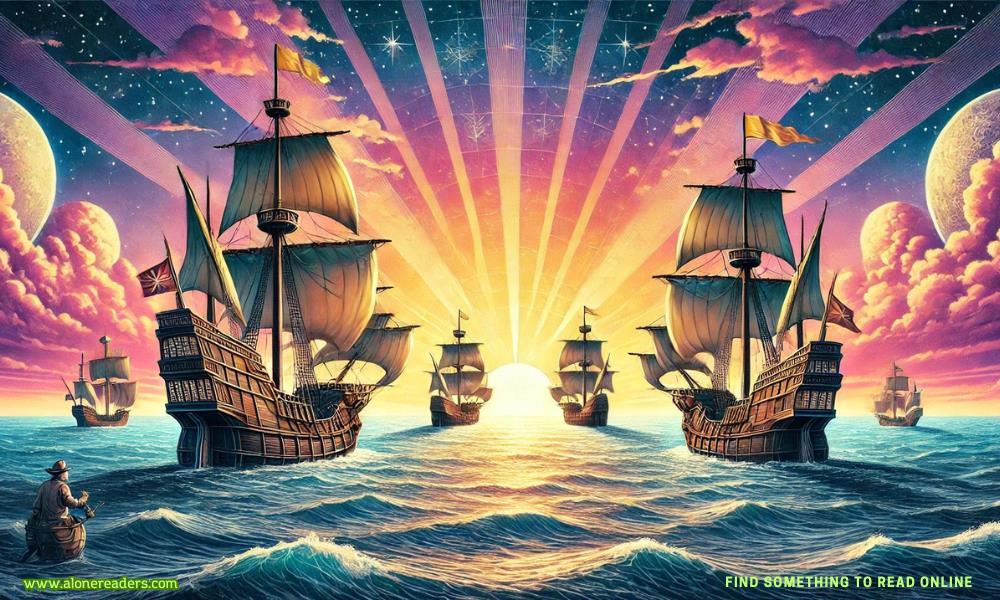
Christopher Columbus, an Italian explorer, embarked on a monumental journey that would forever alter the course of history. Born in Genoa in 1451, Columbus was driven by a desire to find new trade routes and acquire wealth for his patrons. His voyages across the Atlantic Ocean were pivotal in connecting the Old World with the New, leading to the Age of Exploration and the eventual colonization of the Americas.
Columbus's early life was marked by a passion for the sea. He began his maritime career at a young age, gaining experience on various ships and learning the intricacies of navigation. By the time he proposed his ambitious plan to find a westward route to Asia, he was a seasoned sailor. Despite initial skepticism from potential sponsors, Columbus eventually secured the backing of the Spanish monarchs, King Ferdinand and Queen Isabella, who saw the potential for immense riches and the spread of Christianity.
On August 3, 1492, Columbus set sail from Palos de la Frontera with three ships: the Niña, the Pinta, and the Santa María. The journey was arduous, filled with uncertainty and the constant threat of mutiny from his crew. However, Columbus's unwavering determination kept the expedition on course. After more than two months at sea, land was finally sighted on October 12, 1492. Columbus and his crew had reached an island in the Bahamas, which he named San Salvador.
The discovery of the New World was a monumental event. Columbus believed he had found a new route to Asia, unaware that he had stumbled upon a previously unknown continent. His subsequent voyages further explored the Caribbean and parts of Central and South America, solidifying his legacy as the man who opened the door to the New World.
The impact of Columbus's discovery was profound. It marked the beginning of the Age of Exploration, as European powers rushed to explore, conquer, and colonize the newly discovered lands. The exchange of goods, ideas, and cultures between the Old World and the New, known as the Columbian Exchange, transformed societies on both sides of the Atlantic. New crops such as potatoes, tomatoes, and maize were introduced to Europe, while horses, cattle, and other livestock were brought to the Americas.
However, Columbus's legacy is not without controversy. The arrival of Europeans in the New World led to the exploitation and subjugation of indigenous populations. The spread of diseases such as smallpox decimated native communities, and the establishment of colonies often resulted in brutal treatment and displacement of indigenous peoples. Columbus himself was involved in the enslavement and mistreatment of native populations, actions that have led to a reevaluation of his legacy in modern times.
Despite these dark aspects, Columbus's voyages undeniably changed the world. They paved the way for further exploration and the eventual establishment of global trade networks. The blending of cultures and the exchange of knowledge had lasting effects on the development of societies across the globe. The spirit of exploration and the quest for discovery that Columbus embodied continue to inspire adventurers and scholars to this day.
In the centuries following Columbus's voyages, other explorers built upon his discoveries. Figures like Amerigo Vespucci, whose name was given to the new continent, and Ferdinand Magellan, who led the first expedition to circumnavigate the globe, further expanded our understanding of the world. The Age of Exploration saw the mapping of previously unknown territories and the establishment of new trade routes, contributing to the rise of European empires and the spread of Western influence.
Columbus's journey was not just a physical voyage but also a symbol of human curiosity and the desire to push the boundaries of the known world. It represents the beginning of a new era in history, one characterized by exploration, discovery, and the interconnection of diverse cultures and civilizations. While the consequences of these explorations were complex and often tragic, they also laid the groundwork for the modern world as we know it.
Today, the legacy of Columbus is a subject of debate and reflection. While his role as a pioneer of exploration is undeniable, the impact of his actions on indigenous populations cannot be ignored. As we commemorate his voyages, it is essential to recognize the full spectrum of their consequences, both positive and negative, and to honor the resilience and contributions of the native peoples who were profoundly affected by these historical events.
In conclusion, the discovery of the New World by Christopher Columbus was a turning point in history. It opened up new horizons and set the stage for a period of unprecedented exploration and cultural exchange. The voyages of Columbus and his contemporaries remind us of the enduring human spirit of adventure and the quest for knowledge, as well as the importance of understanding and acknowledging the complexities of our shared past.